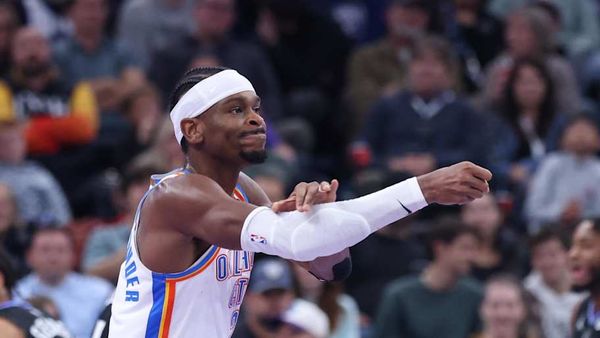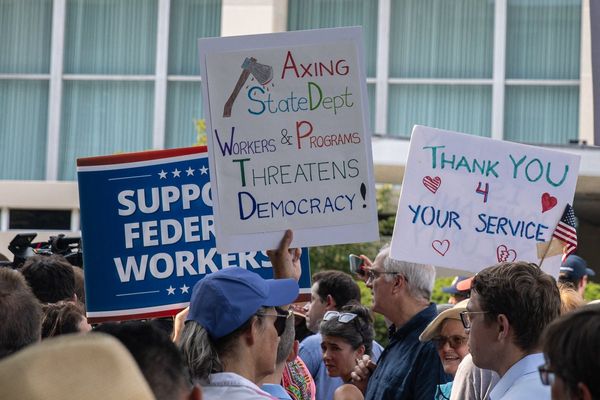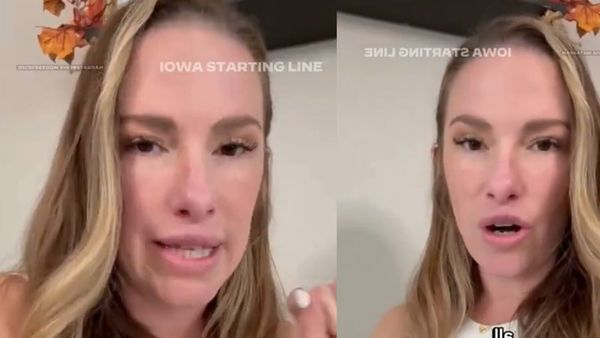
Indigenous Australians were always “fighting the wrong fight” with a voice to parliament, the former prime minister Paul Keating has said, and the failure of the referendum has now “ruined the game” for a treaty that could have properly acknowledged prior Indigenous ownership and dispossession.
In an interview with Guardian Australia, Keating accused the former Liberal prime ministers John Howard and Tony Abbott, and the historian Geoffrey Blainey, of “outrageously and wilfully misinterpreting” the referendum result in an attempt to return to “the great assimilation project”.
“Indigenous Australians never needed us to recognise them,” he said.
“As I told them, yours is a massive and deeply historic problem. Your country was invaded and you were dispossessed of it and many of you were murdered on the way through. You need a political solution, not a legal one; a few rinky-dink legal words in the constitution is not the answer here. The answer is to deal with the history and the forces at hand.
“I have always believed this is their country, they are right to claim the legitimacy of their occupation of it, and wanting to be in the colonial constitution of their colonial dispossessors was, I thought, a capitulation on that point.
“They were fighting the wrong fight, they should have been fighting about the rightness of their pride as the first people of the country … They should have been fighting for the treaty, the actual issue at hand, not the legal avenues by which they might provide advice.
“Politics is not about dealing with little squares on the canvas, politics is about big brush strokes on the canvas. This is a massive historic problem, it was never going to be remedied by a narrow course of legalism.” He acknowledged his view amounted to “support for black sovereignty as an idea”.
The 2017 Uluru statement, which emerged from extensive consultation across Indigenous communities and paved the way for this month’s referendum, always envisaged that a treaty and a truth-telling process would come after the development of a voice to parliament, coordinated and advanced by that advisory body.
Comments by Howard and Blainey about the “benefits” of colonisation and suggestions from Abbott that the vote should also prompt the scaling back of “recent concessions to separatism” such as acknowledgments to country or flying the Indigenous flag were, Keating said, “outrageous extensions of the meaning of the no vote”.
“The no vote did not speak to or about these issues, this is just wilful misinterpretation by conservatives of a conscientious vote by the public,” he said. “This is a return to the great assimilation project, and not even a disguised return.
“Blainey is moving from his ‘black armband’ view of history to a ‘white blindfold’ one. He is suggesting that Aboriginals have done better since we invaded the place and that it was a mistake to invest them with half the continent under native title, ignoring the fact that the title was always theirs, that the highest court in the land found that they own these lands. That seems to be irrelevant to him.
“People like Blainey are law-and-order people, but apparently not for the laws that protect Aboriginal land and its ownership. The high court said the act of British sovereignty did not extinguish native title, he now objects to something the highest court in the land said was law,” he said, referring to the 1992 Mabo high court decision that led to his government’s 1993 Native Title Act.
Keating said he believed the no vote “has ruined the game for the treaty and probably for the republic as well”.
But he saw merit in a suggestion contained in the open letter to parliament from Indigenous leaders who supported a constitutionally enshrined voice to parliament, who said they now wanted to consider establishing a voice “to take up the cause of justice for our people … independent of the constitution or legislation”.
“Even opponents of a voice in the constitution supported the idea, so let’s establish a voice to put views to government about whatever matters they wish … all it would require of the government is a bit of funding from the commonwealth electoral commission to help set it up,” he said.
Keating told the Australian newspaper in the week before the referendum that he would be voting yes and that he believed a voice could dramatically improve outcomes, a view he stands by.
But he said he had long told Indigenous leaders he did not believe constitutional reform was the best route to recognition, pointing to a letter to professors Marcia Langton and Megan Davis, first revealed in Troy Bramston’s biography, Paul Keating: The Big Picture Leader, in which he said “the route to recognition has to be straight through the front door: with a document acknowledging prior occupation, including recognition and atonement for dispossession. A treaty is the best way to do this, notwithstanding it has to be two hundred years late.”







